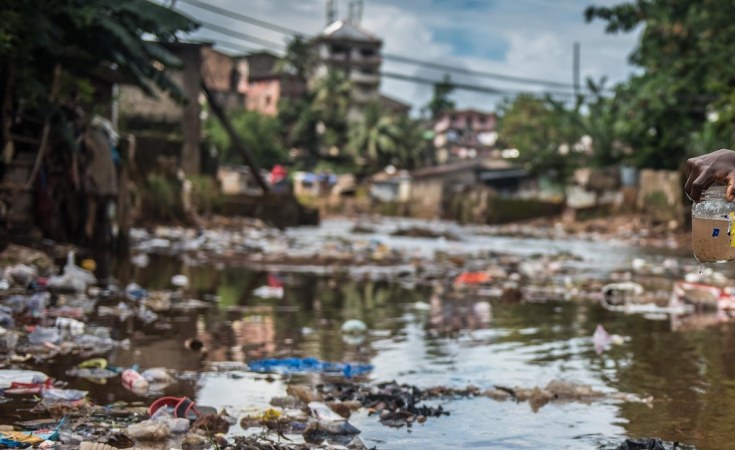Through the Office of the President & Cabinet, the Presidential Taskforce on Coronavirus and Cholera is appealing to the public, private corporate companies and organizations for support in the fight against nationwide cholera outbreak.
The Taskforce's co-chairpersons, Khumbize Kandodo Chiponda (Minister of Health) and Dr Wilfred Chalamira Nkhoma, said the support can be in form of donations that are expected to cover various gaps currently being experienced in the prevention, control and management of the cases across the country.
They include medical supplies such as ringers lactate, giving sets, cholera beds, tents, examination and heavy duty gloves, gumboots, solar lamps.
Also for buckets with taps, aprons and soap, chlorine oral rehydration salts (ORS) and renovation/construction of sanitary facilities to support to schools to improve water and sanitation facilities as well as cash.
Those willing to support are requested to contact the Taskforce's secretariat through national coordinator, Dr Bridon M'baya by email [email protected] or phone +265 (0) 995 883 117 or on the following address:
National Coordinator
Covid-19 and Cholera Secretariat,
Office of the President and Cabinet,
Private Bag 301,
Lilongwe 3
Malawi
"The Presidential Taskforce welcomes any donations regardless of quantities and assures the general public that all donations received will be used for the intended purpose, and will be accounted for.
"The Secretariat will acknowledge all donations received through it," says the Taskforce in its statement, adding "together we can reduce the spread of Cholera in our country".
As of Sunday evening, the country registered 497 new cases accompanied by 10 new suspected cases with 17 new deaths.
Four of the deaths were reported in Blantyre; three each in Dedza and Machinga; two each in Lilongwe and Ntcheu and one each from Thyolo, Balaka and Mangochi -- bringing the cumulative confirmed cases of deaths at 704 at the fatality rate of 3.35%.
The cumulative cases since the onset in March, 2022 is at 21,024 while a total of 19,460 have recovered and 860 cases currently in treatment centres.
Mangochi has reported most cases at 4,769 and 92 deaths; Blantyre (2,981/119); Salima (2,031/56); Lilongwe (1,775/133); Nkhata Bay (1,508/44); Nkhotakota (1,216/53); Rumphi (1,042/18); Karonga (914/23); Dedza (688/28).
Machinga, where it all started has cumulative 549 and 26 deaths; Mzimba North (465/2); Balaka (464/6); Nsanje (309/14); Chikwawa (243/6); and Neno (232/5).
Meanwhile, international medical humanitarian organization, Médecins Sans Frontières (MSF) says it is extending its help to the Ministry of Health for additional medical support against cholera in Blantyre District.
A statement on January 5, said since November 3, MSF has been supporting in Mangochi and Chiradzulu districts and has already treated almost 2,100 patients affected by the outbreak.
It now takes note that Blantyre District has recorded "the highest daily infections in the country since the beginning of the outbreak and MSF will support the local health authorities by setting-up two cholera treatment units (CTUs)".
One will in Maketha with 20-bed capacity and one in Limbe with a 40-bed capacity.To face the emergency, the organisation also plans to support with water sanitation and hygiene activities, medical case management of severe and moderate patients, risk communication and community engagement as well as capacity building of health care workers in detection and management of cholera cases.
In Chiradzulu, MSF provided cholera beds and tents and is monitoring the situation to be ready in intervene in case of need.
Yahya Kalilah, MSF emergency response coordinator, is quoted as saying: ."In Malawi, the occurrence of new cholera cases are mainly due to poor water sanitation and hygiene (unsafe water source, open defecation, low latrine usage (open defecation), poor food hygiene and contact with people sick with cholera.
"The main cause of death sadly remains the late presentation for care or the lack of quality care in certain centers. This can be due to religious believes or general misconceptions, but then, the disease keeps spreading and people keep dying.
"It is important to recall everyone that cholera is easily treatable if the sick people reach a health care structure as soon as the symptoms appear", he said, thus appealing to everyone to seek medical care immediately in case of symptoms of cholera, such as profuse watery diarrhoea, vomiting, thirst or leg cramps.
In Mangochi, MSF is running two cholera treatment units at Koche community hospital with 70 beds and at Mangochi District Hospital with 50 beds.
It has been supporting with coordination of the response at district level, epidemiologic surveillance, community awareness, hygiene items distributions, medical supplies, case management of severe and moderate cases, risk communication, capacity building of health care workers in detection and management of cholera cases.
It has also supported oral cholera vaccination campaign and water sanitation and hygiene (WASH) activities and over the past two months, MSF treated around 2,160 cases in Koche CTU.
Other districts such as Ntcheu and Nkhata Bay have been supported with medical supplies such as ringer lactate, doxycycline, cannulas as well as WASH items such as buckets and water guards.
Médecins Sans Frontières has been present in Malawi since 1986, providing HIV/TB services in Chiradzulu and nation-wide emergency medical relief services in the context of natural disasters or outbreaks.
In 2017, in collaboration with Queen Elizabeth Central Hospital in Blantyre, MSF developed a comprehensive cervical cancer project in partnership with the District Health Offices of Blantyre and Chiradzulu and Queens.


